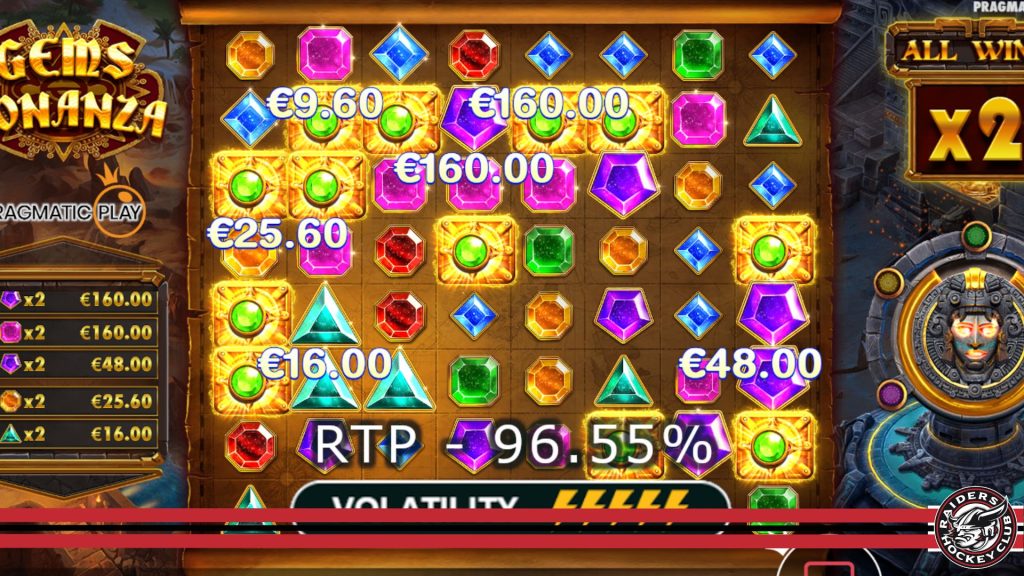Virtual casinos are an excellent way for all gambling enthusiasts to enjoy their leisure time. For example, the East Casino online platform offers products from top global providers like Igtosoftm EGT, Quickspin, Play’n Go, NetEnt, Microgaming, and many others.
When choosing a gambling platform, beginners often prefer clubs with bonuses and a wide variety of games. However, experienced users pay more attention to other parameters, such as reliability ratings, RTP, and slot volatility.
Several mechanisms regulate the payout of winnings in slot machines. All online casinos use mathematical concepts such as random number generators, frequency of outcomes, variance, volatility, and others. To select the most rewarding slots with high RTP values, it is essential to understand how these factors influence the overall game outcome.
What is RTP?
The term “Return to Player,” most commonly referred to as RTP, represents the theoretical (probable) percentage of payout. This value is one of the key indicators of slot machines and gaming devices in all online casinos.
The RTP is usually expressed as a percentage relative to the total number of bets played. It shows the player’s probability of winning and the amount they can expect to receive after a certain number of spins.
The higher the RTP value, the greater the chances of winning and the frequency of winning within a specific time frame. To calculate this value, a special mathematical formula is used, and the initial characteristics are determined by the game’s developer.
RTP is calculated as follows: the ratio of the total amount of winnings to the size of bets, multiplied by 100%.
For example: The popular game Starburst has an RTP of 96.09%. This means that players can expect a payout of $96.09 for every $100 played. The player’s return is on average 96%, while the casino’s advantage is 100% – 96.09% = 3.91%.
What is Volatility?

In addition to RTP, online slots employ other mathematical concepts. Equally important characteristics of a slot machine are Volatility (also known as Variance) and Frequency of outcomes. Volatility is a statistical measure that helps determine the degree of financial risk.
Variance refers to the randomness in relation to the mathematical expectation. The frequency of outcomes indicates the percentage of matching winning combinations.
Unlike RTP, which reflects the probability of winning in the long run, the frequency of outcomes shows how often winning combinations, bonus rounds, and other features can occur. In this context, larger sums paid out in the game (high volatility) are rare, indicating low frequency. For example, with a 9% hit frequency, only 9% of spins, on average, will result in a win of any kind. However, due to randomness (RNG), actual performance may significantly deviate from these metrics.
Volatility can have several variants, ranging from low to high. The lower the value, the more frequently smaller wins are paid out, whereas higher volatility results in less frequent but larger prizes.
How to Find Online Casinos with Slots Featuring High RTP
High volatility slots are easy to identify among the available games. They always offer larger winnings and frequently delight players with valuable combinations. Slots with low volatility have standard payout rates, and the rewards do not exceed average bet sizes.
Slots with high RTP values can be found in all major online casinos that hold official licenses. Such platforms collaborate with well-known brands that provide high-quality certified software. These casinos are rated popular among users and offer the top-rated slots in their collections.
Exerts recommend choosing a casino not only based on the availability of slots with high RTP values but also considering other equally important factors. The online platform should guarantee the security of the player’s funds and the fairness of the slot machines’ settings.
Popular Slots with High RTP and Volatility
Some slots are renowned for their high RTP and volatility, attracting players who seek potentially profitable gaming experiences and utilize BC Game bonuses. For example:
- Mega Joker by NetEnt: This classic slot has an impressive RTP of up to 99%, making it popular among gamers aiming for significant payouts;
- Book of Dead by Play’n GO: This ancient Egyptian-themed game has an RTP of 96.21% and offers an exciting gameplay experience with the potential for substantial winnings;
- Gonzo’s Quest by NetEnt: Known for its captivating storyline and the “Avalanche” feature, it offers a 96% RTP and medium to high variance.
The Importance of Considering RTP and Volatility When Choosing Slots
When selecting online slots, it is crucial to consider both the Return to Player rate and volatility. RTP provides insight into the long-term potential for payouts in the game, allowing gamers to maximize their chances of winning. The level of risk, on the other hand, determines the balance of risk and reward, catering to different player preferences. Carefully evaluating both factors enables you to make an informed choice, enhancing your overall gaming experience and increasing your chances of obtaining significant winnings.
How Do Deviations Affect Online Slots?
Slot machines are highly dynamic games. They come in various forms and formats, with online slots typically featuring special features and bonuses, such as scatter symbols, free spins, progressive jackpots, and fixed jackpots. The presence of these features in online games undoubtedly enhances the level of gameplay and excitement, but they also impact the slot’s variance and the risk associated with that particular game.
Games with fewer special features will provide you with a very balanced gameplay, as you will regularly win small amounts of winnings. These winnings will constantly replenish your gaming balance, and you will find that even after several hours of play, your balance may look the same. Such games have fewer special features and are considered low volatility games.
